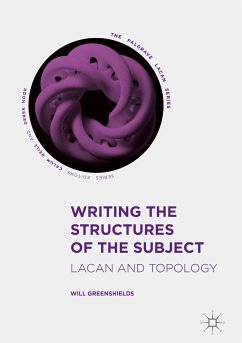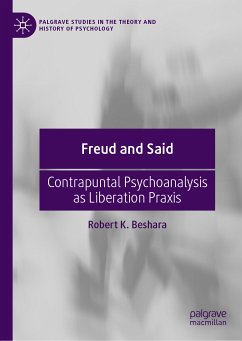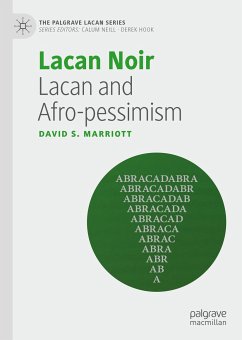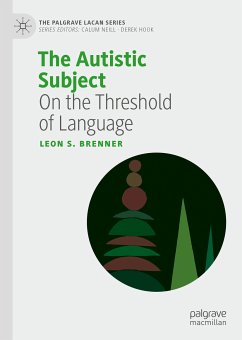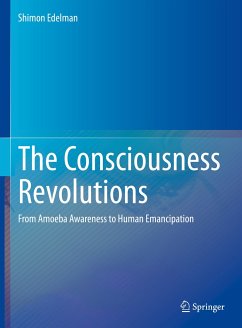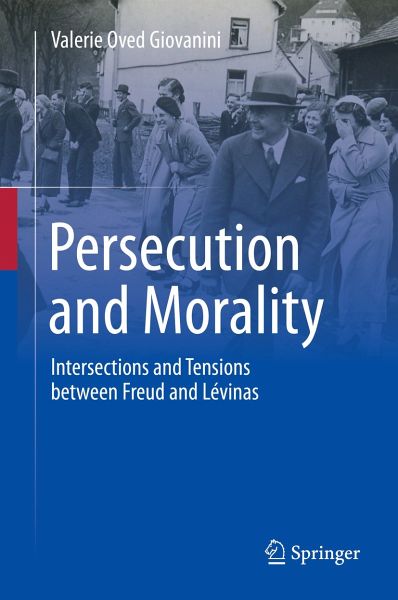
Persecution and Morality (eBook, PDF)
Intersections and Tensions between Freud and Lévinas
Versandkostenfrei!
Sofort per Download lieferbar
22,95 €
inkl. MwSt.
Weitere Ausgaben:

PAYBACK Punkte
11 °P sammeln!
This book shows how persecution is a condition that binds each in an ethical obligation to the other. Persecution is functionally defined here as an impinging, affective relation that is not mediated by reason. It focuses on the works and personal lives of Emmanuel Lévinas-a phenomenological ethicist who understood persecution as an ontological condition for human existence-and Sigmund Freud, the inventor of psychoanalysis who proposed that a demanding superego is a persecuting psychological mechanism that enables one to sadistically enjoy moral injunctions.Scholarship on the work of Freud an...
This book shows how persecution is a condition that binds each in an ethical obligation to the other. Persecution is functionally defined here as an impinging, affective relation that is not mediated by reason. It focuses on the works and personal lives of Emmanuel Lévinas-a phenomenological ethicist who understood persecution as an ontological condition for human existence-and Sigmund Freud, the inventor of psychoanalysis who proposed that a demanding superego is a persecuting psychological mechanism that enables one to sadistically enjoy moral injunctions.
Scholarship on the work of Freud and Lévinas remains critical about their objectivity, but this book uses the phenomenological method to bracket this concern with objective truth and instead reconstruct their historical biographies to evaluate their hyperbolically opposing claims. By doing so, it is suggested that moral actions and relations of persecution in their personal lives illuminate the epistemic limits that they argued contribute to the psychological and ontological necessity of persecuting behaviors. Object relations and intersubjective approaches in psychoanalysis successfully incorporate meaningful elements from both of their theoretical works, which is used to develop an intentionality of search that is sensitive to an unknowable, relational, and existentially vulnerable ethical subjectivity.
Details from Freud's and Lévinas' works and lives, on the proclivity to use persecution to achieve moral ends, provide significant ethical warnings, and the author uses them as a strategy for developing the reader's intentionality of search, to reflect on when they may use persecuting means for moral ends.
The interdisciplinary nature of this research monograph is intended for academics, scholars, and researchers who are interested in psychoanalysis, moral philosophy, and phenomenology. Comparisons between various psychoanalytic frameworks and Lévinas' ethic will also interest scholars who work on the relation between psychoanalysis and The Other. Lévinas scholars will value the convergences between his ethics and Freud's moral skepticism; likewise, readers will be interested in the extension of Lévinas' intentionality of search. The book is useful for undergraduate or graduate courses on literary criticism and critical theories worldwide.
Scholarship on the work of Freud and Lévinas remains critical about their objectivity, but this book uses the phenomenological method to bracket this concern with objective truth and instead reconstruct their historical biographies to evaluate their hyperbolically opposing claims. By doing so, it is suggested that moral actions and relations of persecution in their personal lives illuminate the epistemic limits that they argued contribute to the psychological and ontological necessity of persecuting behaviors. Object relations and intersubjective approaches in psychoanalysis successfully incorporate meaningful elements from both of their theoretical works, which is used to develop an intentionality of search that is sensitive to an unknowable, relational, and existentially vulnerable ethical subjectivity.
Details from Freud's and Lévinas' works and lives, on the proclivity to use persecution to achieve moral ends, provide significant ethical warnings, and the author uses them as a strategy for developing the reader's intentionality of search, to reflect on when they may use persecuting means for moral ends.
The interdisciplinary nature of this research monograph is intended for academics, scholars, and researchers who are interested in psychoanalysis, moral philosophy, and phenomenology. Comparisons between various psychoanalytic frameworks and Lévinas' ethic will also interest scholars who work on the relation between psychoanalysis and The Other. Lévinas scholars will value the convergences between his ethics and Freud's moral skepticism; likewise, readers will be interested in the extension of Lévinas' intentionality of search. The book is useful for undergraduate or graduate courses on literary criticism and critical theories worldwide.
Dieser Download kann aus rechtlichen Gründen nur mit Rechnungsadresse in A, B, BG, CY, CZ, D, DK, EW, E, FIN, F, GR, HR, H, IRL, I, LT, L, LR, M, NL, PL, P, R, S, SLO, SK ausgeliefert werden.



